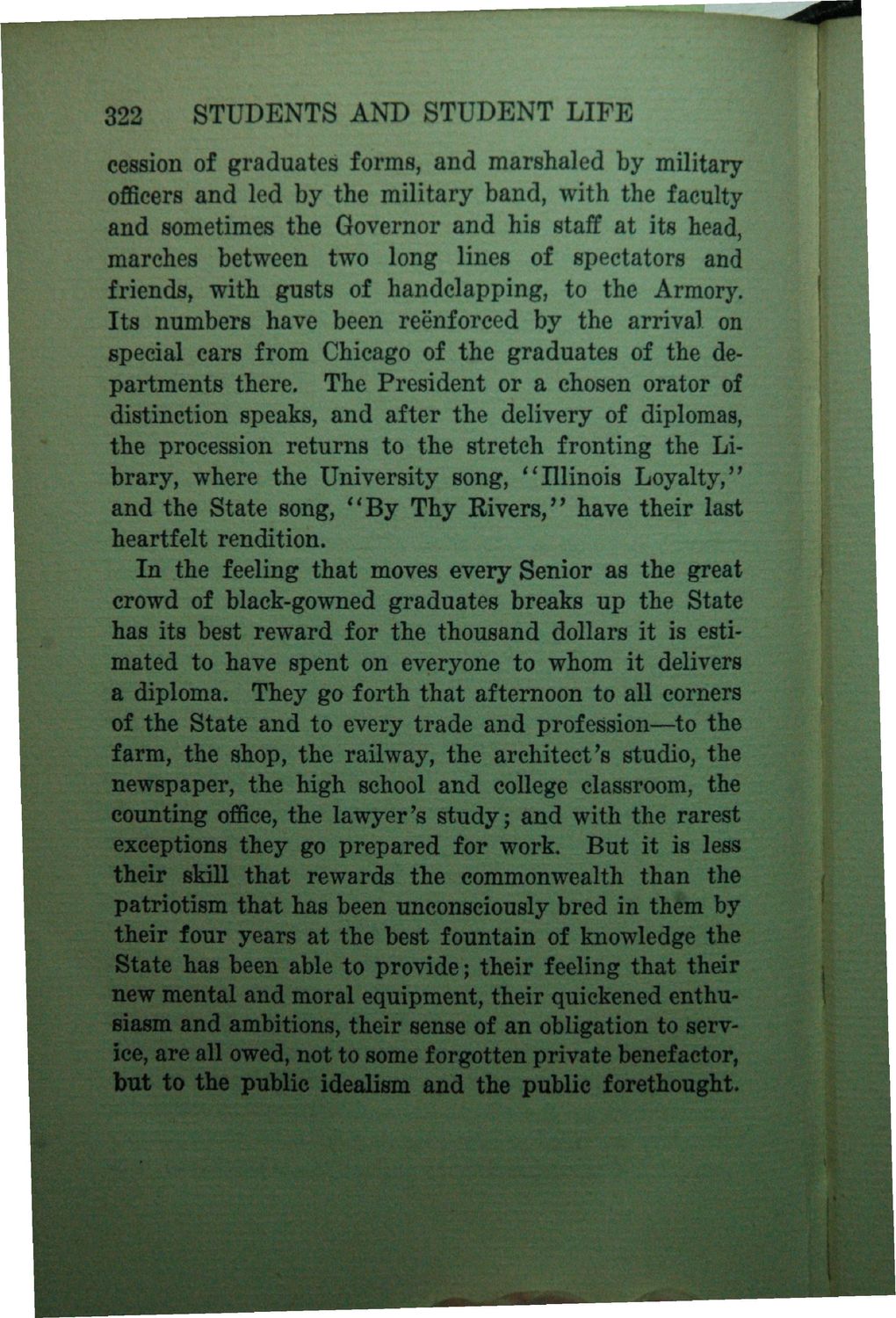| |
| |
Caption: Book - History of the University (Nevins)
This is a reduced-resolution page image for fast online browsing.

EXTRACTED TEXT FROM PAGE:
322 STUDENTS AND STUDENT LIFE cession of graduates forms, and marshaled by military officers and led by the military band, with the faculty and sometimes the Governor and his staff at its head, marches between two long lines of spectators and friends, with gusts of handclapping, to the Armory. Its numbers have been reenforced by the arrival on special cars from Chicago of the graduates of the departments there. The President or a chosen orator of distinction speaks, and after the delivery of diplomas, the procession returns to the stretch fronting the Library, where the University song, "Illinois Loyalty," and the State song, "By Thy Bivers,,, have their last heartfelt rendition. In the feeling that moves every Senior as the great crowd of black-gowned graduates breaks up the State has its best reward for the thousand dollars it is estimated to have spent on everyone to whom it delivers a diploma. They go forth that afternoon to all corners of the State and to every trade and profession—to the farm, the shop, the railway, the architect's studio, the newspaper, the high school and college classroom, the counting office, the lawyer's study; and with the rarest exceptions they go prepared for work. But it is less their skill that rewards the commonwealth than the patriotism that has been unconsciously bred in them by their four years at the best fountain of knowledge the State has been able to provide; their feeling that their new mental and moral equipment, their quickened enthusiasm and ambitions, their sense of an obligation to service, are all owed, not to some forgotten private benefactor, but to the public idealism and the public forethought.
| |